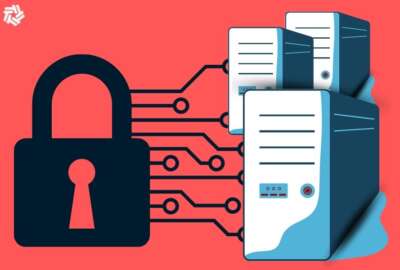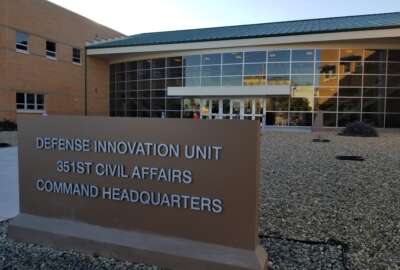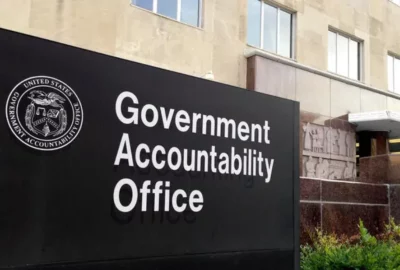The Morning Federal Newscast is a daily compilation of the stories you hear “top to bottom” reform of that agency.
The Postal Service is cutting more than just cost. It’s reducing energy consumption. The agency’s just-released 2009 sustainability report highlights a 9 percent drop for energy consumption from buildings and vehicles. They’ve also upped the use of alternative fuels by 26 percent. It’s all part of a broader goal to slash greenhouse gas emissions by 20 percent 10 years from now.
The Pentagon plans to proceed with a multi-year deal to buy 124 fighter jets. The long term deal will save 10 percent, or $590 million, versus buying the planes year by year. DOD Comptroller Robert Hale, and acquisition chief Ashton Carter notified lawmakers of the deal Friday, according to NextGov. Congress last year let DOD pursue a multi-year deal provided the savings would reach the 10 percent threshhold. The F-A 18 buy will be a combination of Super Hornet fighters and Growler electronic attack planes.
They call him a “crypto god.” Whit Diffie wrote what is considered the most important paper on the history of cryptography in 1976. Now, Diffie has a new role as Vice President for Information Security and Cryptography at ICANN. DaniWeb.com reports that Diffie will provide advice on general security matters for the Internet Corporation for Assigned Names and Numbers, and will oversee best practices for information security and cryptography. ICANN CEO and President Rod Beckstrom says Diffie’s work will help improve ICANN’s technical security.
Veterans calling the Veterans Affairs Department are lucky if they reach an agent and get a correct answer. That’s according to a VA inspector general report released last week. The auditors found that in 2009, individuals dialing a call center had a 76 percent chance of reaching someone. If they reached someone, there was only a 72 percent chance of getting the right answer. The IG did the math, and concluded that a given caller has less than a 50-50 chance of getting the needed information. The IG recommended a central office to oversee and provide training for the call centers.
Now that the public can access your agency’s data through Recovery.gov and USASpending.gov, your job requires more vigilance and scrutiny to ensure the data you post is sound. The IBM Center for the Business of Government has released a report called “Strengthening Control and Integrity: A Checklist for Government Managers.” The checklist, which includes best practices from local governments, is written by Professor James Bailey, and provides information for managers across the board, including senior management and their staff.
Reverse auctions are coming to the Treasury Department in a big way. Officials there plan to use the contracting approach for the fourth version of the long-running Total Information Processing Support Services program. The reverse auctions, in which contractors bid against one another online for task orders, will apply to the small business part of the TIPS program. According to FCW, the contract has a potential value of two billion dollars.
A new tax credit created for small firms under the health overhaul is to be explained today by the Internal Revenue Service, even as opponents of the law plan legal action. The IRS also will clarify that the credit applies to vision and dental, along with medical. The number of firms eligible for the credit is unclear, though the White House has estimated the tax credit might affect up to 4 million firms.
House Democrats have pulled an $85-billion dollar science and technology bill, after Republicans added language to prevent agencies from paying federal employees who view pornography on their work computers. The 2010 America COMPETES Reauthorization Act would have doubled funding for research at the National Science Foundation and one branch of the Energy Department. Republicans also tried to cut all new programs in the bill, and freeze spending on others. Porn has been a hot topic in the federal government. Last month, the Securities and Exchange Commission Inspector General reported instances of employees and contractors viewing porn on their government PC’s. And a recent IG investigation at the National Science Foundation that executives did the same.
The Army says it is recalling 44,000 advanced combat helmets that have been issued to soldiers worldwide because they do not meet military specifications. The Army said in a statement the risk to soldiers wearing the helmets is still being determined. Both the Justice Department and the Army’s inspector general’s office have begun investigations into the matter.
More news links
GPS glitch hit some military systems in January
Former NTSB chief dies in Clinton, Ark., hometown
Glacier Park: The next 100 years
THIS AFTERNOON ON FEDERAL NEWS RADIO
Coming up today on The DorobekInsider:
** Wouldn’t it be nice if you didn’t ever have to worry about being late… And perhaps more importantly, what if the focus of work wasn’t the amount of time you put in but on the results achieved. OPM is testing the idea out. We’ll get details from the creators of the concept.
** We’ll also look at whether there are too many federal contracts — and get an update on your Thrift Savings Plan.
Join Chris Dorobek from 3 to 7 pm on 1500 AM or on your computer.
Copyright
© 2024 Federal News Network. All rights reserved. This website is not intended for users located within the European Economic Area.




